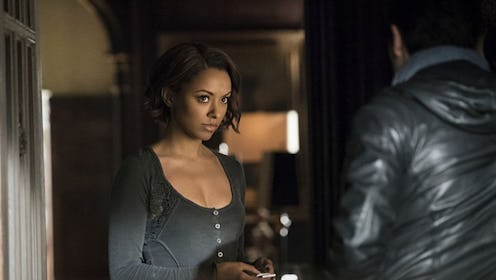Books
Writing Fanfic Was The First Time I Imagined A Black Girl Deserved Her Own Story

When I was in eighth grade, I first learned about a "farm school" on the outskirts of town — a place where I could nurture my love of animals and lay the groundwork for a future as a veterinarian. I went to high school and, eventually, college with the intention of one day settling into a career that would allow me to care for animals all day, every day. But slowly, I grew disenchanted: The science and math classes had always been difficult for me, and I grew more and more disturbed by the idea of euthanizing animals. My plan for my future — the future I had worked towards for eight years — was scrapped. Without that passion holding me in place, I spiraled into depression.
During this time of upheaval and uncertainty, writing became my solace. I had already fallen in love with the CW television show The Vampire Diaries, after seeing a trailer that reminded me of the Twilight movies, which I loved as a teenager. Aside from the obvious plot similarities (a mortal girl falls in love with vampire in a spooky town filled with magic) the two main characters — Elena and Stefan — looked incredibly similar to Bella and Edward. I quickly became hooked on the supernatural series, and in 2012, I began writing a fanfic from the perspective of Elena's friend, the witch Bonnie Bennett. She was the only black character on the show, which I loved, but her courage and fierce loyalty spoke to me most of all.
"She was the only black character on the show, which I loved, but her courage and fierce loyalty spoke to me most of all."
Although I loved that Bonnie — a black witch! — existed as a character on a major television show, I wasn't blind to the ways Bonnie was mistreated by her friends, enemies, and fellow witches throughout the series. In one particularly heartbreaking episode, she uses her magic to stop Elena from transitioning into a vampire (because of course Elena doesn't want to be a vampire), only to be punished by her fellow witches, who kidnap and torture her grandmother for leverage. This experience traumatizes Bonnie deeply, and in the aftermath, she decides to hide away from Elena, Stefan, and the world of Mystic Falls.
I decided I wanted to write a story about Bonnie taking back her agency. I wanted her to use her magic to gain equal footing with the other characters. In the television show, Bonnie cleaned up the other characters' messes, but in my fanfic, she used magic to further her own desires. I realized that I didn't have to accept the canon of The Vampire Diaries as Bonnie Bennett's only story. I could write her a story where she got to be the black badass witch I wanted her to be.
"I realized that I didn't have to accept the canon of The Vampire Diaries as Bonnie Bennett's only story. I could write her a story where she got to be the black badass witch I wanted her to be."
The positive feedback I received from friends and strangers encouraged me to strike out on my own and write an original story. After years and years of consuming white cishet media, I didn't realize that I could write someone like myself as the main character of my novel. In my first original story, the protagonist was black, but she didn’t share my other marginalizations. I feared she'd be labeled as "too much" by readers if I also made her fat or queer. When characters have more than two marginalizations, you can count on at least one person complaining that it’s "unrealistic," as though my very existence is invalid. According to the annual survey published by the Cooperative Children's Book Center, out of approximately 3,700 books published for children in 2017, just 340 were black people. Out of those books, just 122 — about half — were written by black authors. In 2017, Black, Latinx, and Native authors 7 percent of the new children's books published.
"I feared she'd be labeled as "too much" by readers if I also made her fat or queer. When characters have more than two marginalizations, you can count on at least one person complaining that it’s "unrealistic," as though my very existence is invalid."
People like my character exist in the real world, and characters like me can and should exist in fiction. Right now, I’m working on a project about two sisters. The main protagonist, Alisha Brooks, is black, fat, and bisexual, but the novel is not a coming out story. Alisha is just trying to have a fun summer, but when she begins to receive threatening letters, she must figure out who is behind them before they make good on their promise to hurt her and her family. In order to catch the harasser, she’s going to need the help of her sister and their coven. I like to think of it as the black, queer, YA version of Practical Magic — and I would never have considered writing it if I hadn't written about Bonnie Bennett first.
Fanfic helped me find my voice when I thought I didn’t have one. But more importantly, fanfic helped me realize that people like me deserve their own stories, their own magic, their own power. I wrote stories to give Bonnie agency over her life, and in doing so, I gave myself agency over mine. I didn’t have to sit back and wait my turn to read a story that reflects my life experience. I can write it myself.